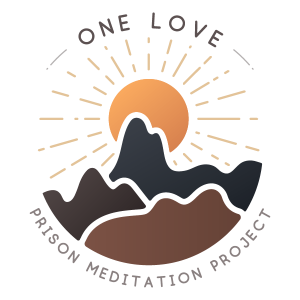
“These classes have created space in my life to experience healing and freedom through the power of meditation”
More than a quarter of all state prisons do not provide people with programs such as counseling, awareness, or drug and alcohol rehabilitation.
Incarcerated people suffer greater anxiety, depression, feelings of isolation, and substance abuse issues while incarcerated. Our meditation classes reduce their anxiety and stress and create positive outcomes. A recent meta-analysis showed that prison visitation reduces recidivism by 26 percent. Prison visitation has been found to be more effective in decreasing recidivism when it is more frequent, is recent (i.e., closer to a person’s release from prison), and involves multiple visitors who provide incarcerated people with a broader network of support.
In the last decade:
Assaults between individuals incarcerated more than doubled
Prison staff assaults on incarcerated people increased by 85%
Emotional support and class offerings to increase health sharply declined
“Meditation makes me feel better than drugs ever did.”
We are in Florida and the Southeast. We currently conduct 12 classes a month in 5 prisons serving over 150 incarcerated people. Help us sustain and bring more support with your contribution.

How One Love Prison Meditation Project Helps
Benefits of Meditation for our Incarcerated Community
A Study of Meditation in Prisons
Researchers offered 90 incarcerated individuals in Oregon state prisons a five-session training program in meditation then asked them to practice the techniques they learned twice daily for 20 minutes. Researchers also followed a control group of 91 incarcerated individuals who didn’t receive any intervention.
After four months, all the men showed some improvement in symptoms, but men in the meditation group reported significantly larger reductions in perceived stress, anxiety, depression, dissociation and sleep disturbances than the inmates who didn’t participate in this program.
For depression and sleep problems, symptom scores were reduced by half, on average, among men who meditated, as was their total trauma score.
“I can tell you that I do not recall a single incarcerated student who participates in your program ending up in disciplinary confinement. I am sure that the meditation principles you present must be having significant impact on the lives of your students.”
There are causes and conditions and policies which have led to a dehumanizing prison system and incarceration rates higher than any country on earth.
We believe in the hearts and minds of the men and women who are incarcerated. We know that they are a part of our collective humanity and we know that we are all uplifted when we support those who need our love and support THE MOST. Please join our movement to bring love and care to our incarcerated community.

“From an early age, I was taught that my life didn’t mean anything. My own mother tried to kill me. I’ve been in and out of foster care and then prison my whole life and I’m in my forties now. I had heard about meditation but just couldn’t motivate myself to really get into it because I guess I didn’t feel I was worth enough to even try and better myself. Then a friend of mine got me to come to Tim’s meditation class. I couldn’t believe the love I felt from this stranger. Tim made me feel like I was important and worthy of love. I think I suck at meditation, but at least now I feel like I’m worth fighting for. So, I try to meditate so that I can be a better man and maybe share some of the love that’s been shown me. Who knows? Maybe I can help someone learn to love themselves too.”
